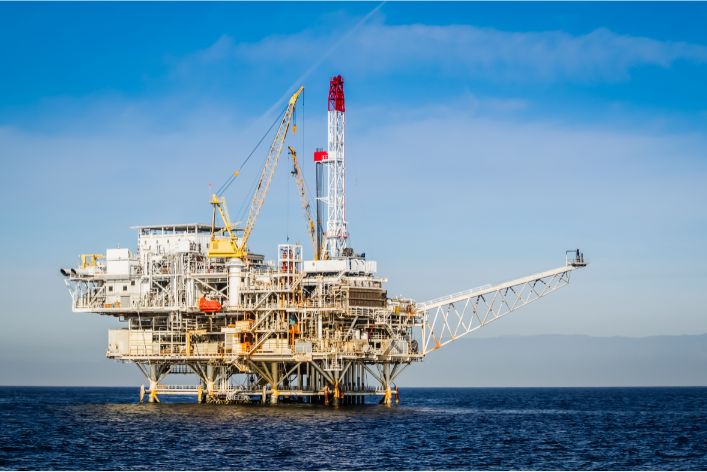Introduction
Environmental Impact Assessors (EIAs) are professionals who assess and evaluate the potential environmental impact of proposed projects.
In Nigeria’s oil industry, EIAs are critical in ensuring sustainable development and minimizing negative environmental impacts.
The focus of this blog post is to provide insight into EIA careers in Nigeria’s oil industry.
The post will emphasize the education, training, job responsibilities, work environment, and career growth for aspiring EIA professionals.
Overview of Nigeria’s Oil Industry
In Nigeria, the oil industry plays a crucial role in the country’s economy, providing over 90% of the government’s revenue. Nigeria is also one of the largest oil-producing countries in Africa.
However, while the oil industry provides significant economic benefits, it also poses a considerable risk to the environment and public health. The exploration, extraction, and production of oil can cause severe environmental damage and contribute to climate change.
Environmental Impact of Oil Exploration, Extraction, and Production
1. Land Degradation
Oil exploration, extraction, and production often involve significant land disturbance and habitat loss. This can result in soil erosion, deforestation, and loss of biodiversity, leading to long-lasting environmental damage.
2. Air and Water Pollution
The oil industry has a significant impact on air and water quality. The burning of fossil fuels releases greenhouse gases, contributing to climate change.
Oil spills and leaks harm marine life, pollute water, and negatively impact local communities dependent on fishing and aquatic activities.
3. Health Impacts
Oil extraction and production can also have negative impacts on human health. Exposure to toxic chemicals and pollutants released during the extraction process can cause respiratory illnesses and other health problems.
Read: Role of Data Analysts in Driving Nigeria’s Oil and Gas Sector
Overview of Environmental Impact Assessor Careers in Nigeria’s Oil Industry
Environmental Impact Assessors (EIAs) in Nigeria’s oil industry play a vital role in reducing the environmental impact of oil exploration, extraction, and production in the country.
EIAs assess and predict environmental impacts of proposed oil and gas projects, offering mitigation recommendations for negative impacts.
Key Responsibilities of Environmental Impact Assessors in Nigeria’s Oil Industry
- Conducting site visits and collecting data on the proposed project’s environmental impact
- Identifying potential environmental risks and developing mitigation strategies
- Assessing the impact that proposed projects will have on the environment
- Providing recommendations to reduce any negative environmental impact that may arise
- Conducting environmental monitoring to ensure project compliance with local regulations
Qualifications and Skills Required for Environmental Impact Assessors
To become an Environmental Impact Assessor in Nigeria’s oil industry, candidates typically need a Bachelor’s degree in Environmental Science, Environmental Engineering, or a related field. Additional post-graduate qualifications, such as a Master’s degree, are also beneficial.
Other essential skills for Environmental Impact Assessors in Nigeria’s oil industry include critical thinking, data analysis and interpretation, effective communication, and strong technical skills in environmental sciences. Knowledge of environmental regulations and legislation is also a key requirement.
Career Opportunities and Salary Expectations
The oil industry in Nigeria is witnessing a growing demand for Environmental Impact Assessors. Career opportunities abound for experienced EIAs in the public and private sectors, including oil and gas companies, environmental consulting firms, and government agencies.
The salary for Environmental Impact Assessors in Nigeria’s oil industry varies depending on the level and type of experience, qualifications, and job location. Entry-level positions typically earn around NGN 200,000 – NGN 300,000 per month, while experienced professionals can earn up to NGN 1,000,000 or more.
The rapid growth of Nigeria’s oil industry has brought significant economic benefits to the country. However, it has also resulted in considerable environmental damage and public health hazards.
Professionals in the field of environmental impact assessment play a crucial role in mitigating environmental impact within the oil industry. The demand for these experts is steadily growing.
Choosing a career in environmental impact assessment in Nigeria’s oil industry promises a rewarding path amid sustainable development’s rising focus.
Read: Reservoir Simulation Engineer: An In-depth Look at Nigerian Prospects
Overview of Environmental Impact Assessment (EIA)
Environmental Impact Assessment (EIA) is a process of evaluating the potential environmental impacts that a proposed project may have on the environment. This assessment is usually conducted by an Environmental Impact Assessor (EIA) who evaluates the potential environmental impacts that a project may have during its construction, operation, and decommissioning stages.
The significance of EIA in the oil and gas industry cannot be overstated. The industry is notorious for its adverse environmental impacts, and without adequate EIA, these impacts may go unmitigated.
EIA plays a significant role in ensuring that oil and gas companies in Nigeria comply with environmental regulations.
Oil and gas exploration and production cause substantial environmental impacts, such as water, soil, and air pollution, habitat fragmentation, and biodiversity loss.
Environmental Impact Assessments (EIAs) identify potential project impacts and implement mitigation measures to reduce environmental impact.
One significant role of EIA is to ensure compliance with environmental regulations. The Nigerian government has put in place environmental regulations that oil companies operating in the country must comply with. EIAs are used to assess whether the proposed project complies with these regulations.
Why is EIA important in the oil and gas industry?
The oil and gas industry is often associated with environmental pollution, mainly due to the industry’s extraction and production processes. Companies in the industry must minimize environmental degradation by conducting operations that align with global environmental protection.
EIA is an essential tool that helps oil and gas companies identify the potential environmental impacts of their projects.
It helps companies evaluate the impacts of their operations and identify the best ways to mitigate or avoid them. EIA also helps companies comply with environmental regulations, reducing potential legal conflicts that may arise due to non-compliance.
For a company to obtain an Environmental Impact Assessment Certificate (EIAC), the company must ensure that its proposed project complies with environmental regulations.
The certificate proves the company underwent an environmental assessment and implemented measures to minimize project impact.
Obtaining an EIAC is essential for a company to operate in the oil and gas industry in Nigeria.
Read: How to Become a Successful Pipeline Engineer in Nigeria
The role of EIA in ensuring compliance with environmental regulations
EIA plays a significant role in ensuring that oil and gas companies comply with environmental regulations. It is a tool that helps companies evaluate the potential environmental impacts of their projects and identify how to avoid or mitigate these impacts.
Environmental regulations in Nigeria are structured to ensure that oil and gas companies take into account the environmental impacts of their operations.
EIAs are used to evaluate whether a proposed project complies with environmental regulations in the country. The EIA report must identify and assess the project’s potential environmental impacts and recommend appropriate measures to mitigate these impacts.
Once the EIA report is submitted to the regulatory authorities, they evaluate it to determine if the proposed project meets environmental regulations.
The environmental regulatory authorities only issue an EIAC if the proposed project meets all the environmental regulations criteria. Without an EIAC, the proposed project will not be approved.
Environmental Impact Assessment (EIA) is an essential process in the oil and gas industry that helps companies identify the potential environmental impacts of their projects.
EIA helps evaluate the impact of proposed projects on the environment and identify the best ways to mitigate them.
Oil and gas companies in Nigeria must comply with environmental regulations, and EIA plays a vital role in ensuring adherence.
Obtaining an Environmental Impact Assessment Certificate (EIAC) is essential for any oil and gas company to operate in Nigeria.
Qualifications and Educational Requirements
Becoming an Environmental Impact Assessor (EIA) in Nigeria’s oil industry requires specific educational qualifications and skills. Candidates possessing the required qualifications and skills are better suited to carry out the various responsibilities of an EIA.
Below are the educational background and the importance of knowledge and skills in environmental sciences, engineering, and sustainability.
Educational Background Required to be an EIA
At a minimum, an EIA should have a Bachelor’s degree or a higher degree in an environmental-related field such as Environmental Science, Environmental Engineering, Ecology, Geology, Geography, or any other related field.
However, some employers may require a Master’s degree or a Ph.D. in Environmental Sciences and related fields.
The educational background of an EIA should also cover topics such as environmental management, environmental planning, and pollution control. Candidates must undergo training that provides them with a good understanding of how the oil and gas sector works, and the implications of activities driven by the sector.
Importance of Knowledge and Skills in Environmental Sciences, Engineering, and Sustainability
Knowledge and skills in environmental sciences, engineering, and sustainability are crucial to carry out assessments and provide recommendations that ensure sustainable practices in the oil and gas sector.
Below are the specific areas where knowledge and skills are needed:
Environmental Sciences:
Prospective EIAs need to have a broad understanding of natural science and engineering practices as they relate to the environment. They must possess knowledge in the areas of ecology, geology, chemistry, biology, and physics.
Environmental Engineering:
EIAs must have a basic understanding of environmental engineering. They should know how to analyze and mitigate environmental impacts. They also need to understand how to use various techniques and tools to deal with various environmental problems that can arise from the oil industry.
Sustainability:
EIAs should have a deep knowledge of the principles of sustainability and sustainable development. They should be able to recommend sustainable practices to reduce environmental impacts in the oil and gas sector. They should also understand how to integrate social, economic, and ecological considerations when making recommendations.
Beyond the three areas highlighted above, EIAs should also be capable of using various software applications. These tools allow them to analyze large data sets and provide recommendations based on accurate information.
Summarily, the educational background and skills that are required for EIAs to carry out their duties are quite specific. Candidates seeking to pursue a career in this field should strive to get relevant education and training. It is also crucial for them to keep up with new developments and technologies as they emerge.
Read: The Crucial Role of Geophysicists in Nigeria’s Oil Discovery
Breaking into an EIA Career in Nigeria’s Oil Industry
The Nigerian oil industry is one of the largest in Africa, and it offers numerous opportunities for Environmental Impact Assessors (EIAs) hoping to make a difference in the industry. However, aspiring EIA professionals in Nigeria’s oil industry also face several challenges.
This blog post will detail these opportunities and challenges, the importance of networking and building industry connections, and the key elements that make up a strong EIA resume.
Opportunities and Challenges in Nigeria’s Oil Industry
Oil makes up a significant portion of Nigeria’s economy, accounting for over 90% of the country’s exports. With such a large industry, there are numerous opportunities for EIAs to make a positive impact on the environment and people’s livelihoods.
However, the industry also faces several environmental and social challenges, including air and water pollution, oil spills, and conflicts with local communities.
EIAs play a critical role in mitigating these adverse impacts and ensuring that oil production adheres to environmental regulations and guidelines.
However, EIAs must also navigate the complexities of the oil industry and balance the interests of various stakeholders.
The Importance of Networking and Building Industry Connections
In Nigeria’s oil industry, networking and building industry connections are crucial to finding job opportunities. Many oil companies hire EIA professionals through their contacts or recommendations, making it essential for EIA professionals to build relationships with industry stakeholders.
Attending industry events, conferences, and seminars are excellent ways to network and gain visibility in the industry.
Additionally, voluntary work and internships can provide valuable experience and the opportunity to meet professionals already working in the industry.
The Elements of a Strong EIA Resume
When seeking a job in Nigeria’s oil industry as an EIA professional, having a strong resume is essential. Employers typically spend just a few seconds scanning resumes, so it is critical to include the most relevant information and achievements at the top of the document.
The key elements of a strong EIA resume include a clear objective statement, relevant work experience, education, and professional skills.
What’s more, including any project experience or coursework related to the oil industry or environmental impact assessment will help set applicants apart from other candidates.
Breaking into an EIA career in Nigeria’s oil industry requires a combination of education, experience, and networking. While the industry offers many opportunities for EIAs to make a positive impact, it is also essential to navigate the challenges and social complexities of the industry.
By building strong connections and crafting a strong EIA resume, aspiring professionals can find success in the Nigerian oil industry.
EIA Consultant versus In-House EIA Professional
Environmental Impact Assessment (EIA) is a crucial process in the Nigerian oil and gas industry, and it requires the expertise of professionals who can identify, assess, and mitigate potential environmental risks associated with oil and gas activities. As such, it is important to consider the two primary career paths available in the EIA field:
- EIA Consultants: These are professionals who work on a contractual basis with different companies to conduct environmental impact assessments. They are not full-time employees of any one company but instead may work for multiple clients at any given time.
- In-House EIA Professional: These professionals are employed directly by oil and gas companies to oversee and manage the environmental impact assessments of their company’s operations. They work in-house, and their primary focus is on the company’s activities alone.
Both career paths come with their own advantages and disadvantages, and it ultimately depends on personal preferences and work style. Let us examine them, one by one:
Advantages of being an EIA Consultant:
- Flexibility: EIA consultants have the freedom to work for different companies, meaning they do not have to limit themselves to the operations of a single company. This level of flexibility permits them to choose clients and projects that align more closely with their values and interests.
- Diverse Experience: Due to the fact that consultants work with different companies, they have the ability to gather ideas, perspectives, and experience from a variety of environments and operations.
- Higher Earnings Potential: Compared to in-house professionals, EIA consultants tend to earn more due to the nature of contractual work, which offers more room for the negotiation of fees.
Disadvantages of being an EIA Consultant:
- Job Insecurity: Because EIA consultants work on a contractual basis, they may only have work for a project’s duration, leaving them with an uncertain future. This also means that they need to continuously be on the lookout for new clients.
- Less Job Stability: Unlike in-house EIA professionals, who work for an oil and gas company, consultants have no job security and may not get consistent work from their contracts.
- No Benefits: Being an EIA consultant means that you are not entitled to any company benefits such as paid leave, pension, healthcare, etc. Consultants are solely responsible for their own benefits and welfare.
Advantages of being an In-House EIA Professional:
- Job Security: In-house EIA professionals work directly for their respective oil and gas companies, which gives them some level of job security since they are employees. This also provides them with consistent work and steady income.
- Company Benefits: Full-time employees of a company typically have access to company benefits like pension plans, health care, vacation time, etc.
- Clear Career Path: In-house EIA professionals have a clear career progression path outlined by the company. This means that they can see a long-term future with their employer from entry-level positions up to management levels.
Disadvantages of being an In-House EIA Professional:
- Less Flexibility: In-house EIA professionals are limited to working for only one company with a set of defined responsibilities instead of the varying roles that consultants have.
- Less Diverse Experience: Due to the fact that In-House EIA professionals work for only one company, they tend to have less experience compared with consultants working on different projects from varying companies.
- Lower Earnings Potential: Due to the nature of their employment agreement, In-House EIA professionals typically earn less than consultants, with less room for negotiation of salaries.
Exploring the Potential for Freelance Work in EIA:
As mentioned earlier, EIA consultants operate as independent workers, meaning that they are self-employed and can offer services to multiple companies.
As such, qualified EIA professionals who are interested in freelance work can establish themselves as freelance consultants.
However, freelancing comes with its unique set of challenges. Freelancers have to create an independent company and have to market and promote their services themselves.
They also have to deal with the hassles of invoicing and collecting payments from multiple clients. Despite the challenges, EIA professionals can relish flexible work hours and potentially higher wages.
In a nutshell, both EIA consultant and in-house EIA professional come with their benefits and drawbacks. It depends on an individual’s personal preference and career goals.
EIA professionals, whether self-employed or working for a company, play a vital role in Nigeria’s oil and gas industry. They maintain the balance between industry activities and the environment, creating an appealing and fulfilling career path.
Read: Oil and Gas Project Management Careers in Nigeria Explored

Salary and Career Advancement
EIA professionals in Nigeria’s oil industry are responsible for assessing the environmental impact of oil exploration and production activities.
Due to the critical nature of their job, these professionals are offered competitive salaries and benefits.
Discussion on salary expectations for EIA professionals in Nigeria’s oil industry
The salary expectation for EIA professionals in Nigeria’s oil industry varies based on several factors, including the position and level of experience. The starting salary for entry-level EIA professionals in the oil industry in Nigeria ranges from ₦100,000 to ₦150,000 per month.
As you gain more experience, your salary can increase up to ₦500,000 per month. However, this depends on several factors, including your level of experience, your position, the organization you work for, and the oil company’s size.
Oil companies tend to pay higher salaries than consulting firms because they work directly with the oil companies that engage them. Additionally, EIA professionals who work in remote offshore locations are often paid higher salaries than those working in urban areas.
Importance of continuous professional development and certification to advance in the industry
Continuous professional development and certification are essential for EIA professionals to advance in the industry. Technological advancements, new environmental regulations, and changing industry standards require EIA professionals to stay updated with the latest knowledge and skills.
Professional development can take many forms, including attending conferences, workshops, and training courses.
While certification is voluntary for EIA professionals in Nigeria, obtaining a relevant certification can enhance your credibility and career advancement prospects.
Publish Your Professional Profile, Business or Brand
Showcase your expertise, gain trust, and boost visibility instantly on Professions.ng.
Publish NowThe Association of Environmental Impact Assessors of Nigeria (AEIAN) is a professional body that offers certification programs for EIA professionals in Nigeria. The certification process involves completing a course and passing the certification exam.
AEIAN-certified EIA professionals enjoy several benefits, including increased recognition, higher chances of promotion, and enhanced job opportunities.
The EIA profession in Nigeria’s oil industry offers attractive salaries and benefits. However, to advance in the industry, EIA professionals must engage in continuous professional development and consider obtaining relevant certification from professional bodies such as AEIAN.
Explore Further: Oil and Gas Project Management Courses
See Related Content: Health and Safety Careers in Nigeria’s Oil and Gas Industry
Challenges Faced by EIA Professionals in Nigeria’s Oil Industry
The oil industry is vital to Nigeria’s economy, contributing significantly to the country’s Gross Domestic Product (GDP). However, the exploration, production, and transportation of oil have significant environmental impacts, making it essential to assess and manage these impacts carefully.
Environmental Impact Assessment (EIA) professionals have a critical role to play in ensuring that the oil industry operates sustainably, but they face several challenges.
Environmental Regulations in Nigeria and Their Enforcement
Nigeria has several laws and regulations to protect the environment, including the 1992 EIA Act and the 2007 National Environmental Standards and Regulations Enforcement Agency Act (NESREA).
However, governmental enforcement of these regulations remains weak. The regulatory agencies lack adequate resources, face political interference, and often prioritize economic development over environmental protection.
As a result, industry actors, including oil companies and contractors, often operate outside the law, leading to significant environmental damage.
Challenges EIA Professionals Face in Dealing with Oil Companies, Government Agencies, and Stakeholders
Resistance from Oil Companies
Oil companies may resist EIA professionals, raising questions about the credibility and accuracy of the assessments.
The companies may push back against the recommendations made, often due to financial implications, or dispute the findings of the EIA altogether.
Some may threaten EIA professionals, leading to safety concerns and reluctance to conduct assessments fully.
Lack of Necessary Skills and Resources
The EIA process requires a specific set of skills, including environmental, social, and technical expertise. The proper conduct of EIAs requires a comprehensive understanding of the ecosystem and oil industry practices.
EIA professionals may lack the necessary training and experience to identify potential environmental impacts, evaluate them, and suggest appropriate mitigation measures.
Additionally, due to inadequate funding, they may lack the resources, data, and equipment needed to carry out effective assessments.
Inadequate Public Participation
The EIA process requires input from stakeholders, including local communities, civil society organizations, and other interested parties. Public participation can ensure that the EIA process addresses the concerns and needs of the affected communities.
However, in Nigeria, public participation in the EIA process is often inadequate due to several factors such as lack of awareness, language barriers, and cultural differences. Failure to incorporate public input could result in incomplete, ineffective, and unsustainable assessments.
Influence from Government Officials and Regulators
Government actors can significantly influence the EIA process, either due to political or economic interests.
Government officials can manipulate assessment results, reducing their effectiveness in mitigating environmental impacts.
Also, the government may prioritize economic interests over environmental protection, leading to weakened regulations and inadequate enforcement.
The challenges faced by EIA professionals in Nigeria’s oil industry are vast and complex. Ranging from weak enforcement of environmental regulations to the lack of necessary resources and skills essential for effective assessments.
The challenges hinder EIA professionals from delivering credible and comprehensive assessments that accurately portray environmental impacts.
Government, oil companies, and stakeholders must collaborate holistically to address challenges, safeguard the environment, and promote sustainable development.
Conclusion
Summary of the key points:
Environmental Impact Assessors play a crucial role in Nigeria’s oil and gas industry. Oil and gas exploration and production activities have significant environmental and social impacts that must be carefully evaluated and managed.
EIA is a legal requirement for all oil and gas projects in Nigeria, and it involves a thorough assessment of the potential impacts of such projects on the environment, biodiversity, and human health.
The EIA process also helps to identify and mitigate the negative effects of oil and gas projects and ensures that they comply with national and international environmental standards.
Importance of EIA in the sustainable development of Nigeria’s oil and gas industry:
The importance of EIA in Nigeria’s oil and gas industry cannot be overemphasized. It serves as a critical tool for ensuring that oil and gas projects are developed sustainably and in compliance with environmental regulations.
EIA also helps to facilitate stakeholder engagement and promotes transparency in the decision-making process.
EIA professionals play a critical role in promoting sustainable development and responsible utilization of oil and gas resources in Nigeria.
Possible solutions to the challenges of the EIA profession in Nigeria’s oil and gas industry:
Despite the crucial role that EIA plays in Nigeria’s oil and gas industry, there are several challenges facing the profession.
These include inadequate funding, insufficient training, and capacity building, and a lack of political will to enforce environmental regulations.
To tackle these challenges, we must increase EIA activity funding, provide specialized training for EIA professionals, and establish strict enforcement mechanisms for environmental regulations.
Active stakeholder engagement and collaboration between government, industry, and civil society drive sustainable development in Nigeria’s oil and gas sector.




